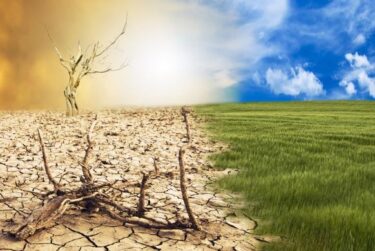Recent Release | 27 Jul 2023
The Clean Growth Gap: How low carbon energy investment can transform the UK

Industry Consulting Team
Oxford Economics

This report sponsored by Energy UK investigates the challenges the UK faces in attracting sufficient private sector investment to finance its clean energy transition. It also details the economic benefits that transition could bring.
In order for the UK to meet its Net Zero goals, private sector investment in a decarbonised power system is essential. However, there is a risk that incentive schemes around the world such as the US Inflation Reduction Act will attract investment in green energy infrastructure away from the UK. This would cause the UK to fall behind in the global race to decarbonise. Oxford Economics’ forecasts already predict the UK will have the slowest growth in low-carbon electricity generation between now and 2030 of the world’s largest eight economies.
A slowdown in private sector investment would suppress the UK’s flourishing clean energy industry which is estimated to employ 247,400 full-time equivalent (FTE) workers. The UK clean energy sector also supports many other workers indirectly both through purchase from its domestic supply chain and the wages spent by people working in the sector. Oxford Economics’ modelling suggests that manufacturing sectors would be amongst the biggest beneficiaries of increased green investment spending. These manufacturing sectors are often situated in areas whose fortunes have declined in recent years due to deindustrialisation. As such, there is a risk that a lack of investment in the UK’s clean energy industry would also lead to opportunities to reduce geographical disparities being missed.
The UK stands at a cross road. To establish itself as a global leader in clean technologies, the paper argues it will require decisive action from government as well as effective working between government, industry, and civil society.
The experts behind the research
Our Industry Consulting team are among the world’s leading analysts of a variety of industrial sectors. They combine their expert insight with our state-of-the-art economic models and tools to answer the crucial questions facing our clients.

Emily Gladstone
Senior Economist, Industry

Andy Logan
Director of Industry Consulting
Tags:
You may also be interested in

Silver, the next generation metal
This report highlights the critical role silver plays in data centres and artificial intelligence (AI), automotive and electric vehicles (EVs), and solar energy photovoltaics (PVs). With these sectors expected to expand significantly over the coming years, we expect future silver demand to be strong.
Find Out More
Key take-aways from COP30
COP 30’s agenda had placed a strong emphasis on countries’ implementation of their emissions reduction target and, for the first time, several workstreams included discussions on unilateral trade policies.
Find Out More
Flooding risks diverge across UK cities, sectors and economies
Climate-linked flooding is becoming more severe, reshaping risks for UK cities, real estate, and local economies. Which areas face the greatest impact—and why?
Find Out More
COP 30 in focus: How to stay the course on the path to Net Zero
EMDEs are projected to account for 70% of global CO₂ emissions by 2050, making accelerated emissions reductions in these economies essential. Yet gaps in AE leadership—such as US policy rollbacks and insufficient climate finance—risk slowing the global transition.
Find Out More